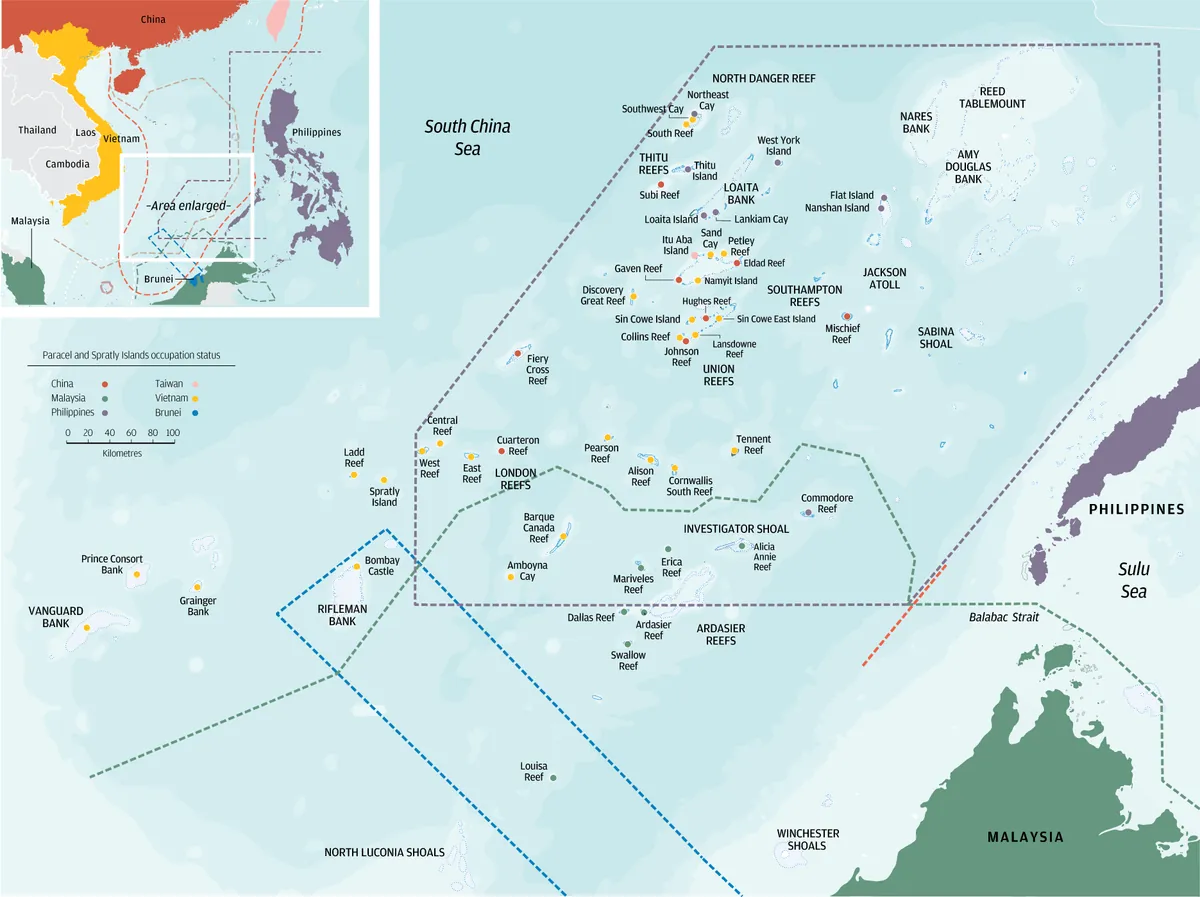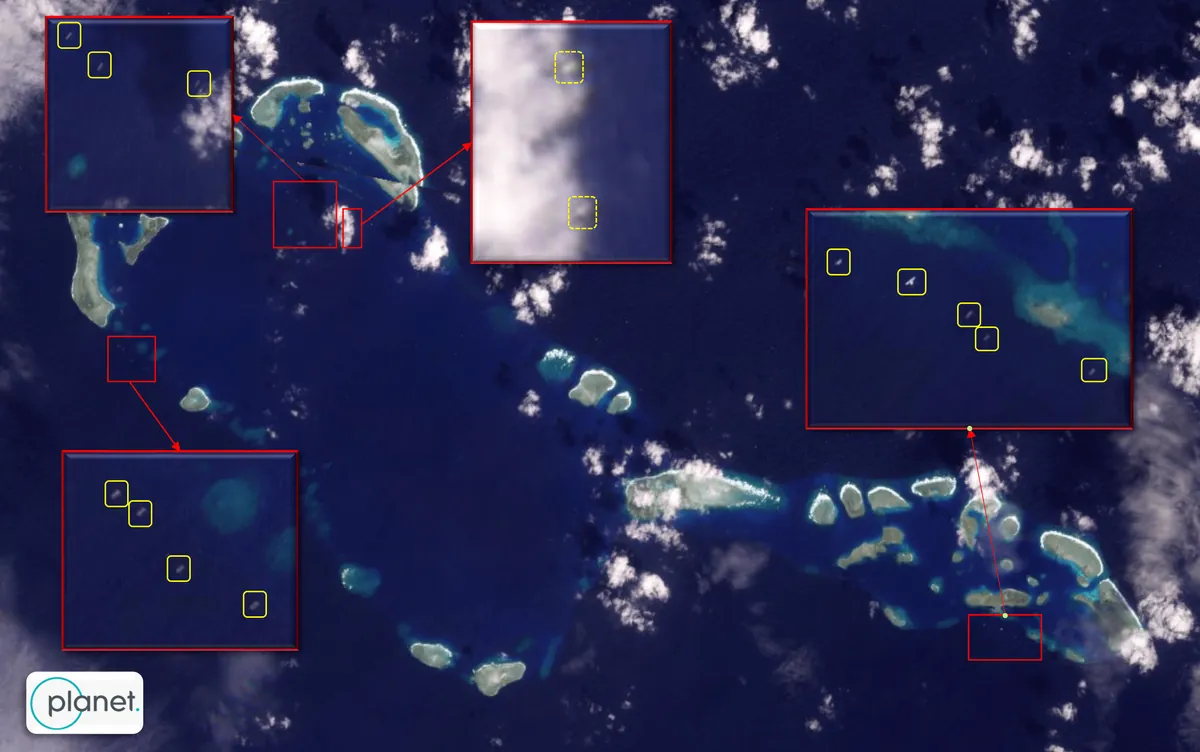China and Philippines Trade Accusations Over Ship Collision in South China Sea
China and the Philippines accuse each other of ramming ships in the disputed South China Sea. The incident at Sabina Shoal marks an escalation in territorial tensions over the resource-rich waterway.

In a recent escalation of tensions in the South China Sea, China and the Philippines have accused each other of initiating a ship collision near Sabina Shoal. The incident, which occurred on August 26, 2023, highlights the ongoing territorial disputes in this strategically important waterway.
The South China Sea, covering approximately 3.5 million square kilometers, has been a hotbed of contention for decades. China's expansive "nine-dash line" claim encompasses about 90% of the sea, overlapping with claims by several Southeast Asian nations, including the Philippines, Brunei, Malaysia, Taiwan, and Vietnam.
According to the Chinese coast guard, a Philippine vessel "illegally stranded" at Sabina Shoal deliberately rammed a Chinese ship. Conversely, the Philippine coast guard asserts that a Chinese vessel intentionally collided with one of their ships. This conflicting narrative underscores the complexity of the situation in the region.

The importance of the South China Sea cannot be overstated. It serves as a crucial maritime route for global trade, with an estimated $3 trillion worth of commerce passing through annually. Moreover, the area is believed to contain significant oil and natural gas deposits, with estimates suggesting 11 billion barrels of oil and 190 trillion cubic feet of natural gas.
The region's rich biodiversity adds another layer to its significance. Home to over 3,000 fish species and some of the world's most biodiverse coral reefs, the South China Sea plays a vital role in global marine ecosystems. Additionally, it supports more than 50% of the world's fishing vessels, highlighting its importance for food security.
In 2016, the Permanent Court of Arbitration in The Hague ruled that China's sweeping claims in the South China Sea had no legal basis. However, Beijing continues to reject this ruling, maintaining its stance on territorial sovereignty.
Liu Dejun, a spokesperson for China's coast guard, called on the Philippines to withdraw from the shoal immediately. He stated:
"The Chinese coast guard will take the measures required to resolutely thwart all acts of provocation, nuisance and infringement and resolutely safeguard the country's territorial sovereignty and maritime rights and interests."
On the other hand, Jay Tarriela, spokesperson for the Philippines Coast Guard, reported that the Chinese Coast Guard had disregarded collision regulations and performed dangerous maneuvers, resulting in damage to their vessel. Fortunately, no injuries were reported.
The incident at Sabina Shoal, which lies within the Philippines' 200-nautical mile exclusive economic zone, is just one of many in the long-standing dispute. The area has seen increased military presence and island-building activities in recent years, further complicating the geopolitical landscape.
As tensions continue to simmer, the international community watches closely. The South China Sea dispute remains a critical issue affecting regional stability, global trade, and the delicate balance of marine ecosystems in this vital waterway.


































